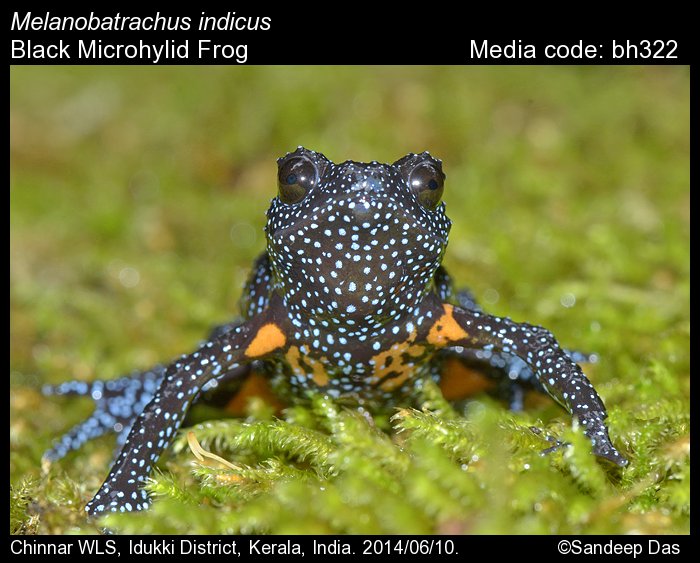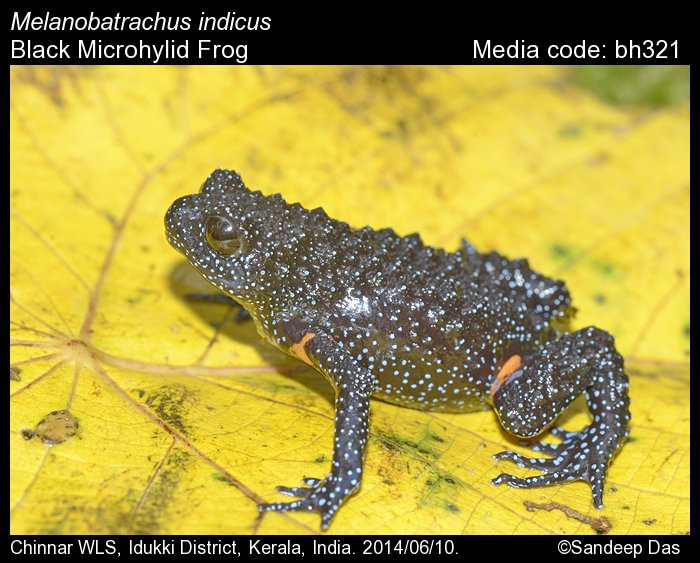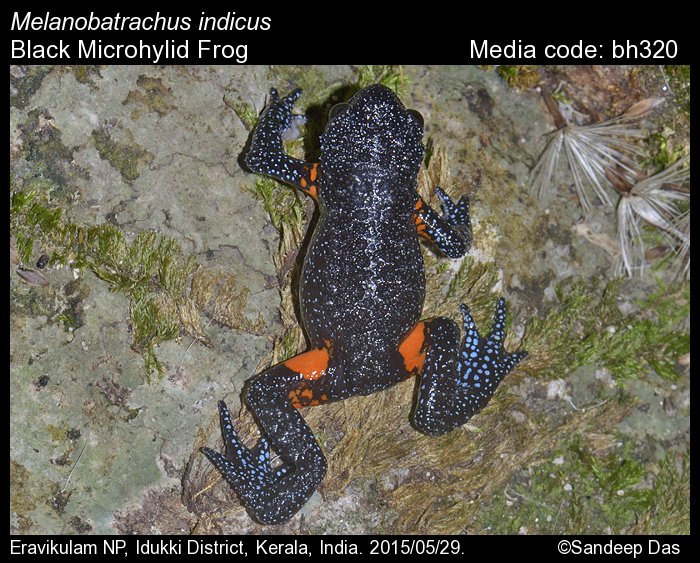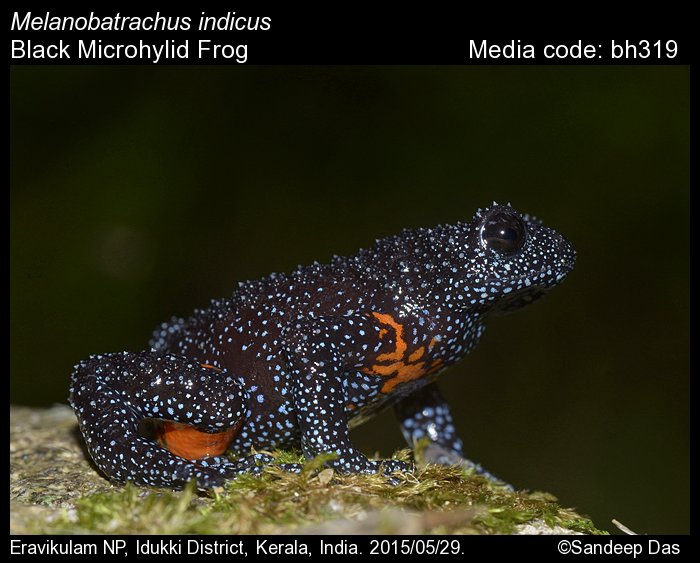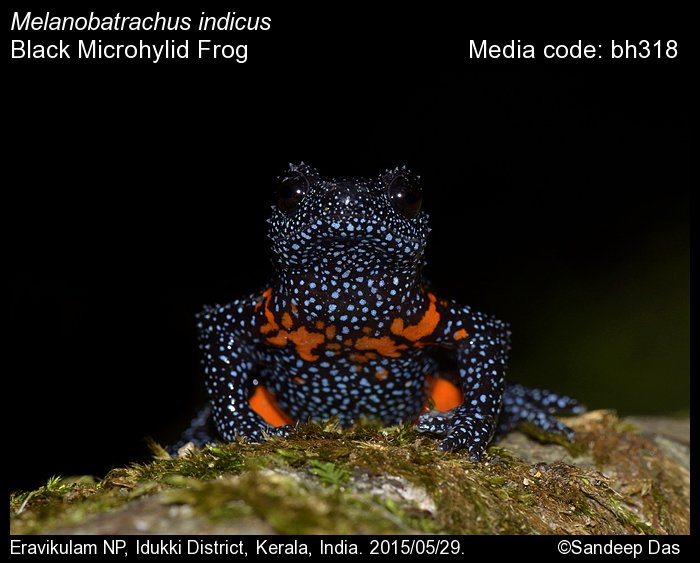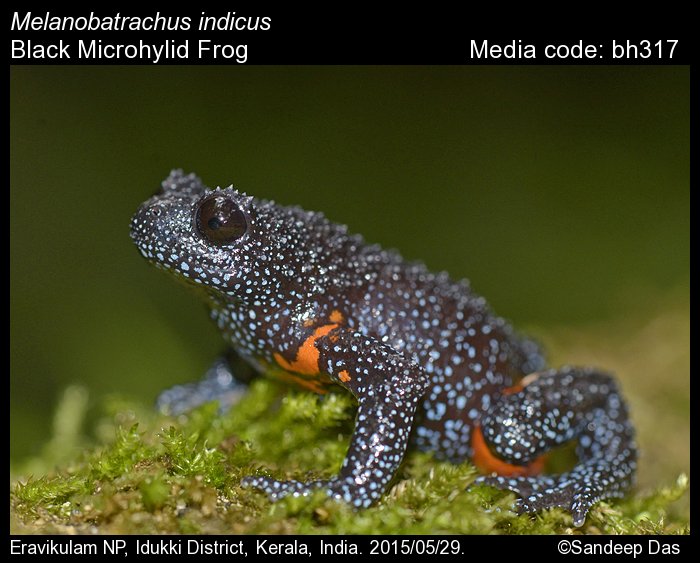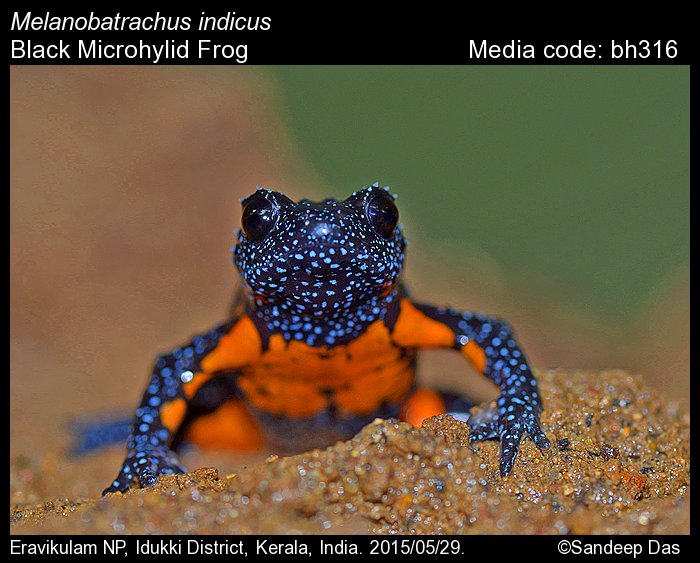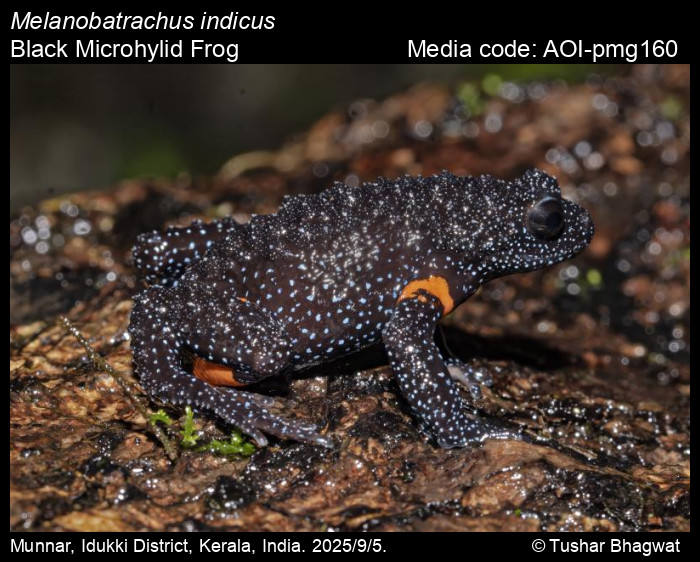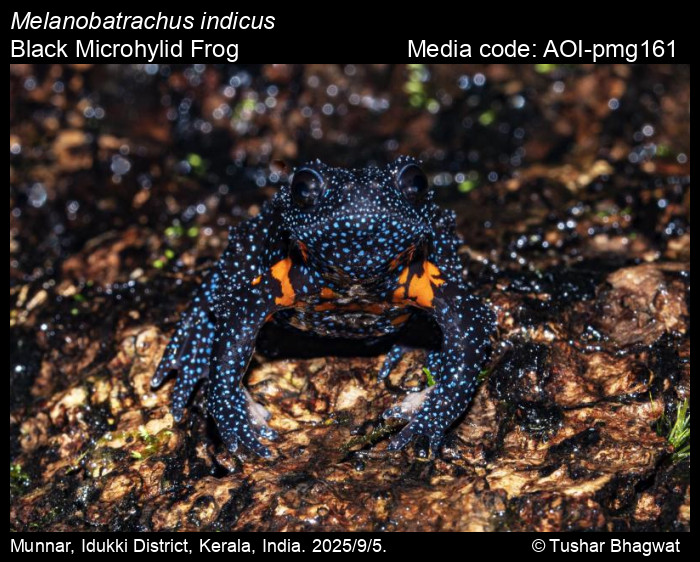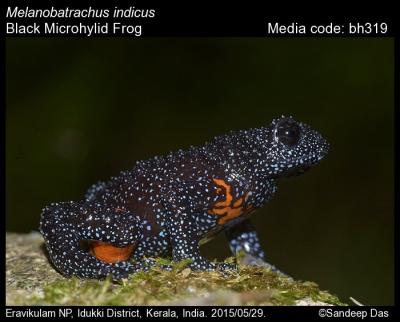
Subspecies in India
This is also known as Orange Black Tubercled Indian Microhylid.
Photo Gallery and Species Biology
This species is very rare. It inhabits tropical evergreen forest and inland wetlands of the southern Western Ghats of India (mainly in Agasthyamalai hills and Anaimalai hills in Tamil Nadu, and Periyar Tiger Reserve in Kerala), at the heights of 900m - 1,200m asl.
Conservation Status:
According to the IUCN Red List assessment, the population of this species is declining. Its current population size is unknown. Its Extent of Occurrence is less than 5,000 sq km. The threat to its persistence comes from habitat disturbance due to deforestation for the cultivated lands and the building of dams.
| State | Jan | Feb | Mar | Apr | May | Jun | Jul | Aug | Sep | Oct | Nov | Dec | No date |
|---|---|---|---|---|---|---|---|---|---|---|---|---|---|
| Andaman and Nicobar Islands | |||||||||||||
| Andhra Pradesh | |||||||||||||
| Arunachal Pradesh | |||||||||||||
| Assam | |||||||||||||
| Bihar | |||||||||||||
| Chandigarh | |||||||||||||
| Chhattisgarh | |||||||||||||
| Dadra & Nagar Haveli | |||||||||||||
| Daman & Diu | |||||||||||||
| Delhi | |||||||||||||
| Goa | |||||||||||||
| Gujarat | |||||||||||||
| Haryana | |||||||||||||
| Himachal Pradesh | |||||||||||||
| Jammu and Kashmir UT | |||||||||||||
| Jharkhand | |||||||||||||
| Karnataka | |||||||||||||
| Kerala | 2 | 1 | 1 | ||||||||||
| Ladakh UT | |||||||||||||
| Lakshadweep | |||||||||||||
| Madhya Pradesh | |||||||||||||
| Maharashtra | |||||||||||||
| Manipur | |||||||||||||
| Meghalaya | |||||||||||||
| Mizoram | |||||||||||||
| Nagaland | |||||||||||||
| Odisha | |||||||||||||
| Paschimbanga | |||||||||||||
| Pondicherry | |||||||||||||
| Punjab | |||||||||||||
| Rajasthan | |||||||||||||
| Sikkim | |||||||||||||
| Tamil Nadu | |||||||||||||
| Telangana | |||||||||||||
| Tripura | |||||||||||||
| Uttar Pradesh | |||||||||||||
| Uttarakhand | |||||||||||||
| West Bengal | |||||||||||||
| Total | 2 | 1 | 1 |
S.D. Biju, Karthikeyan Vasudevan, Gajanan Dasaramji Bhuddhe, Sushil Dutta, Chelmala Srinivasulu, S.P. Vijayakumar. 2004. Melanobatrachus indicus. The IUCN Red List of Threatened Species 2004: e.T13032A3406563. https://dx.doi.org/10.2305/IUCN.UK.2004.RLTS.T13032A3406563.en. Accessed on 05 November 2020.
Page citation
Anonymous 2026. Melanobatrachus indicus Beddome, 1878 – Black Microhylid Frog. In Gosavi, N., A. Bayani, and K. Kunte (Chief Editors). Butterflies of India, v. 1.05. Published by the Indian Foundation for Butterflies. URL: https://www.indianamphibians.org/melanobatrachus-indicus, accessed 2026/01/31.
